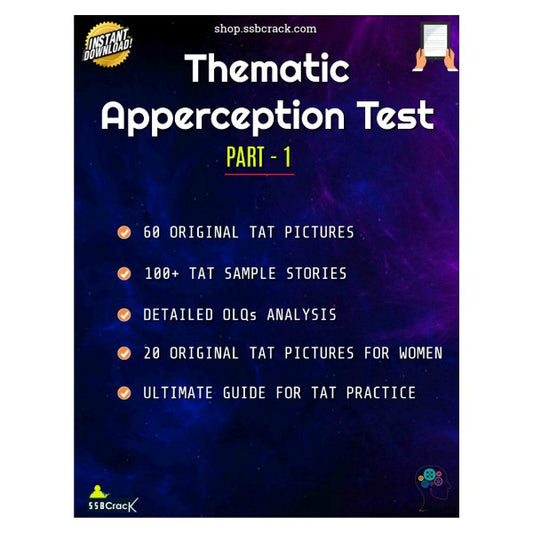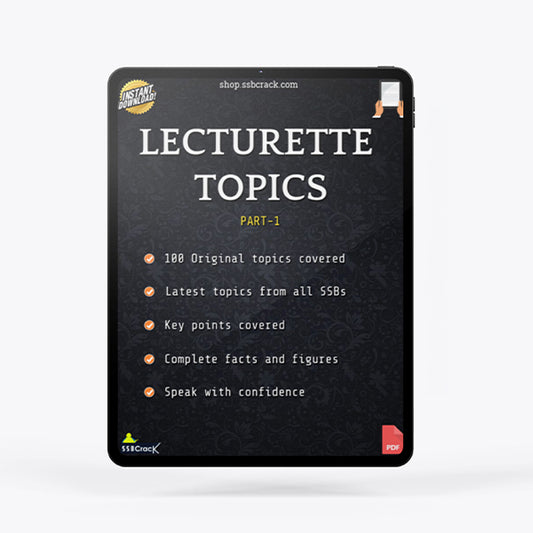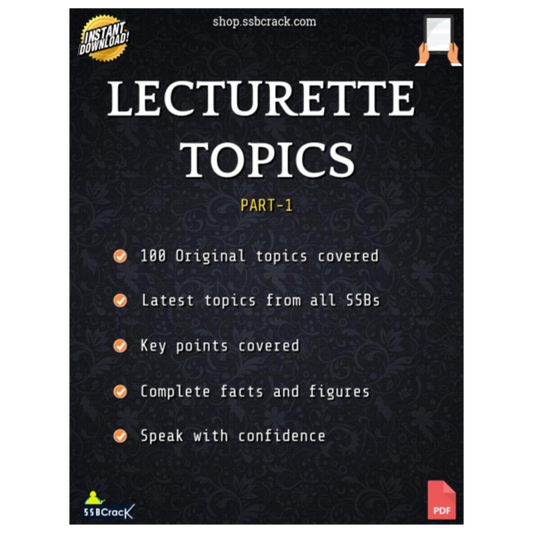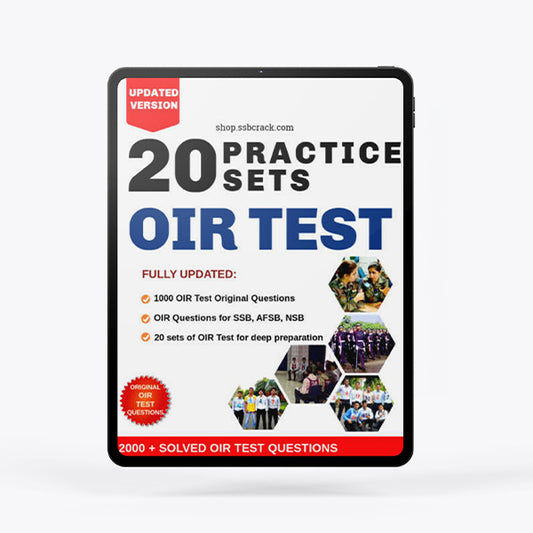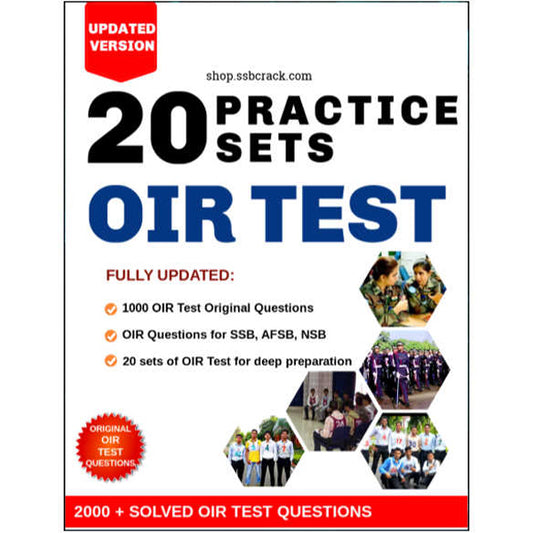50+ Personal Life Questions Faced In SSB Interview
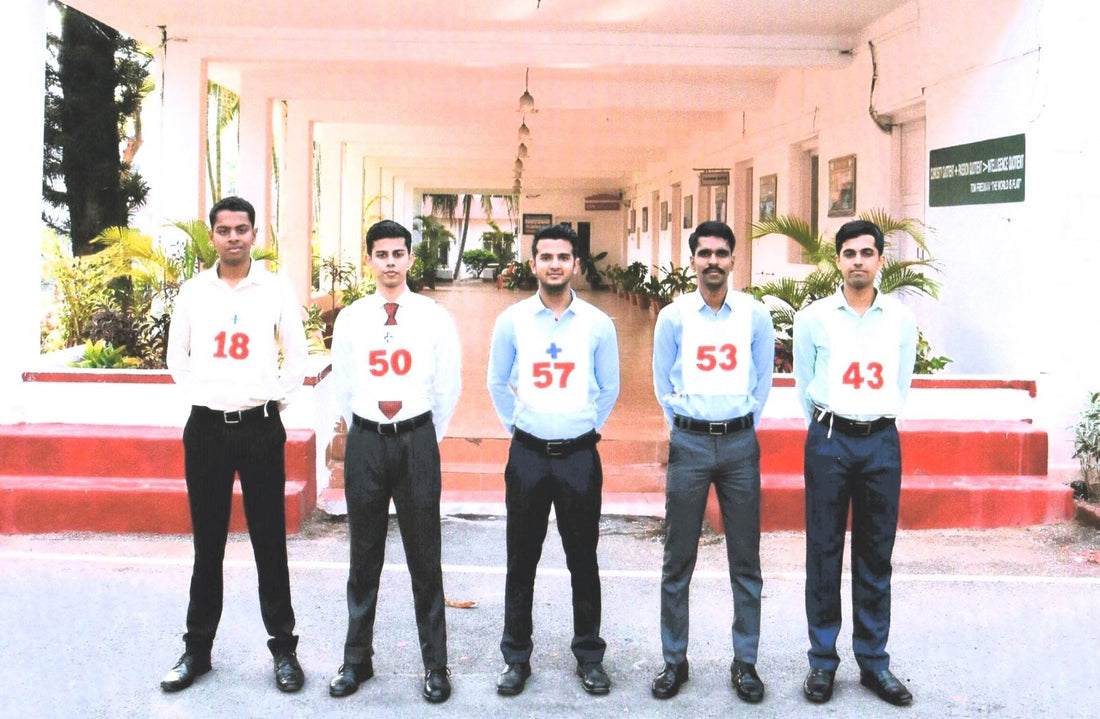
When preparing for the Service Selection Board (SSB) interview, candidates often face a rigorous set of personal life questions that deep-dive into various aspects of their backgrounds, personalities, and aspirations. The SSB interview is pivotal in assessing a candidate's suitability for the Defence forces, representing a blend of psychological analysis, personality assessment, and situational judgment.
Candidates who are prepared will not only convey their thoughts effectively but also demonstrate traits aligned with the values upheld by the Defence services. This article will elaborate on over 50 personal life questions commonly encountered in the SSB interview, categorized across various themes, along with valuable tips for answering them effectively.
SSB Interview Books Power Pack: 4 Must Read Books for Defence Aspirants
Rs. 1,760.00
Sale price
Rs. 1,399.00
Let's Crack SSB Interview Book [Paperback]
Rs. 390.00
Sale price
Rs. 360.00
Breaking The Code of SSB Psychological Tests Book - SSB Interview (TAT/WAT/SRT/SD)
Rs. 390.00
Sale price
Rs. 360.00
OIR Test & PPDT Book - SSB Interview Screening Test - Stage 1 Testing
Rs. 490.00
Sale price
Rs. 375.00
The SSB interview process has its roots in the need to select candidates who possess not just physical capabilities but also the mental resilience and leadership qualities essential for a career in the Defence forces. Since its establishment in 1948, the SSB has evolved to include various psychological tests aimed at understanding a candidate’s potential for growth, adaptability, and team dynamics. The convergence of personal life questions plays a crucial role in assessing these traits.
Types of Personal Questions in SSB Interview
Understanding the types of personal questions you might encounter can help alleviate stress and prepare you for a more confident performance. Here are some major categories of questions you can anticipate:
Personal Background
- Name and Meaning: "What is your name, and what does it mean?" - Here, the interviewer seeks to gauge your self-awareness and understanding of your identity.
- Family Members: "Can you tell me about your family?" - Discuss the names and occupations of your family members, offering insights into your familial bonds.
- Hometown: "Describe your hometown. What do you like and dislike about it?" - Share a balanced view of your locality, including any prominent figures associated with it.
Family-Related Questions
4. Family Size and Occupation: "How many members are in your family, and what do they do?" - Provide a brief introduction to your family tree.
5. Closest Relationship: "Which family member are you closest to, and why?" - This question aims to explore emotional connections and values.
6. Sibling Comparison: "How do you compare yourself with your siblings?" - Highlight the unique attributes that make you distinct while respecting your siblings.
Friends and Social Life
7. Types of Friends: "What kind of friends do you prefer?" - Discuss the qualities you value in friendships.
8. Description by Friends: "How would your friends describe you?" - Provide insights into how you perceive your personality through the lens of your social circle.
9. Support to Friends: "Can you recall an instance where you helped a friend?" - Sharing personal anecdotes can solidify the credibility of your claims.
Education and Extracurricular Activities
10. Education Background: "What institutions have you studied in?" - Mention significant educational experiences and accomplishments.
11. Achievements in School: "What leadership positions have you held?" - This showcases your capability to manage responsibility.
12. Favorite and Least Favorite Subjects: "What was your favorite subject in school, and why?" - Use this moment to connect academic strengths to career interests.
Daily Routine and Hobbies
13. Daily Routine: "Describe your daily routine on a working day." - This helps the panel gauge your time management skills and discipline.
14. Hobbies: "What are your hobbies, and how do they contribute to your growth?" - Discuss your interests and their impact on your personality.
Intimate and Personal Relationships
15. Marriage Plans: "Are you planning to get married? What qualities do you look for in a partner?" - This question explores your personal values and life outlook.
16. Intimate Relations: "Can you comment on your views regarding physical relationships?" - While specific responses may be sensitive, it's important to remain respectful and candid.
Strengths, Weaknesses, and Life Goals
17. Self-Reflection: "What are your biggest strengths?" - Align your strengths with qualities sought in Defence personnel, such as leadership and resilience.
18. Recognizing Weaknesses: "What are your weaknesses?" - Focus on areas of improvement and how you're working to overcome them.
19. Long-Term Goals: "Where do you see yourself in 5-10 years?" - Create a vision that resonates with opportunities in the Defence field.
20. Handling Stress: "How do you manage stress?" - Discuss strategies that reflect emotional intelligence and composure.
Social Service and Community Involvement
21. Community Service Activities: "What social service activities have you participated in?" - Share specific initiatives that reflect your commitment to societal welfare.
Decision-Making and Leadership
22. Difficult Decisions: "Describe a tough decision you had to make." - This question assesses your critical thinking and decisiveness.
23. Leadership Roles: "Share an experience where you exhibited leadership." - Building on this can illustrate your proactive nature.
24. Conflict Resolution: "How would you handle a conflict in a team?" - Convey strategies grounded in respect and communication.
Tips for Answering Personal Questions
Preparation is critical for effectively responding to personal questions during the SSB interview. Here are some essential strategies:
- Know Yourself Thoroughly: Familiarize yourself with your Personal Information Questionnaire (PIQ) and Self-Description Test. Each response should resonate with the data you’ve provided.
- Be Honest: Authenticity is crucial. Attempting to fabricate information can lead to inconsistencies that may undermine your credibility during the interview. -
- Provide Examples: Using relevant anecdotes strengthens your responses and provides context for your assertions.
- Maintain Eye Contact and Speak Clearly: Communication is key—build rapport through positive body language and modulated speech.
- Stay Composed: Confidence is vital; practice speaking smoothly and staying on-topic without unnecessary elaboration.
Practice and Preparation
Realistic mock interviews are invaluable for honing your responses to personal questions. Here are some practical steps to follow:
- Set Up Mock Interviews: Engage friends, family members, or mentors to conduct mock interviews that replicate the SSB format.
- 2. Review and Revise: Keep track of your responses: are they aligned with your PIQ? Make necessary adjustments to ensure coherence.
SSB Interview Study Material 2025 [ Pack of 17 eBooks ]
Rs. 1,313.00
Sale price
Rs. 499.00
Thematic Apperception Test (TAT) Part 1 eBook [100+ Stories]
Rs. 150.00
Sale price
Rs. 139.00
SSB Lecturette Topics Part-1 eBook [100 Topics]
Rs. 149.00
Sale price
Rs. 125.00
OIR Test eBook with 20 Practice Sets - [1000+ Questions Included]
Rs. 250.00
Sale price
Rs. 199.00
Conclusion
Navigating the landscape of personal life questions in the SSB interview requires a blend of self-reflection, preparation, and authentic engagement. By understanding the broad scope of questions and preparing your responses accordingly, you enhance your chances for success. Remember, the aim of these questions is not merely to quiz but to gauge your compatibility, leadership potential, and resilience—traits that are not only beneficial for Defence service but also in life as a whole.
For aspiring candidates, resources such as SSBCrack and SSBCrackExams can provide essential materials including books, online courses, and eBooks, helping you delve deeper into the nuances of the SSB interview process. Always keep the end goal in sight: to demonstrate your capability and readiness to serve with integrity and honour.
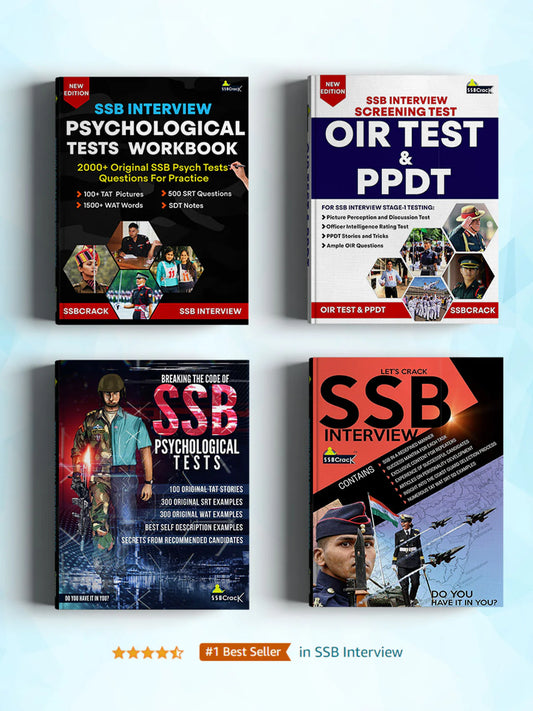
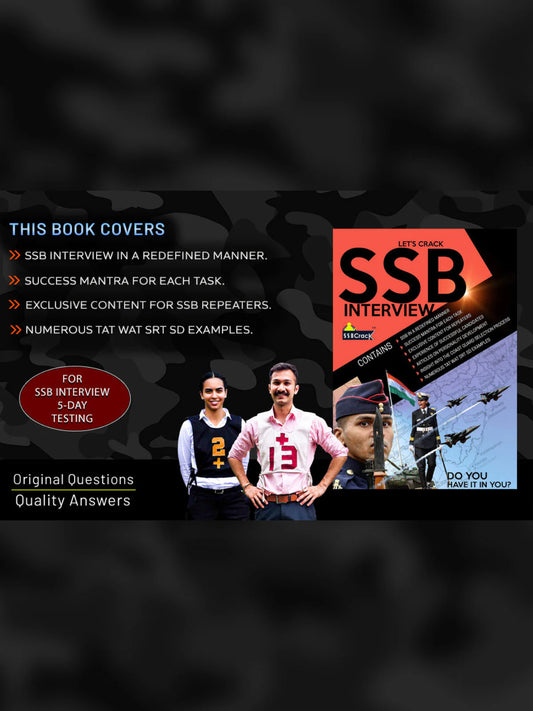
![Let's Crack SSB Interview Book [Paperback]](http://shop.ssbcrack.com/cdn/shop/files/ssb-books.webp?v=1736351621&width=533)
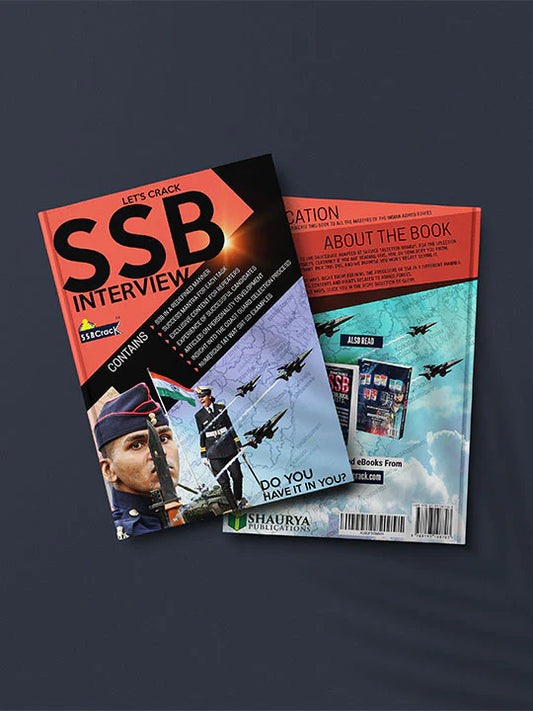
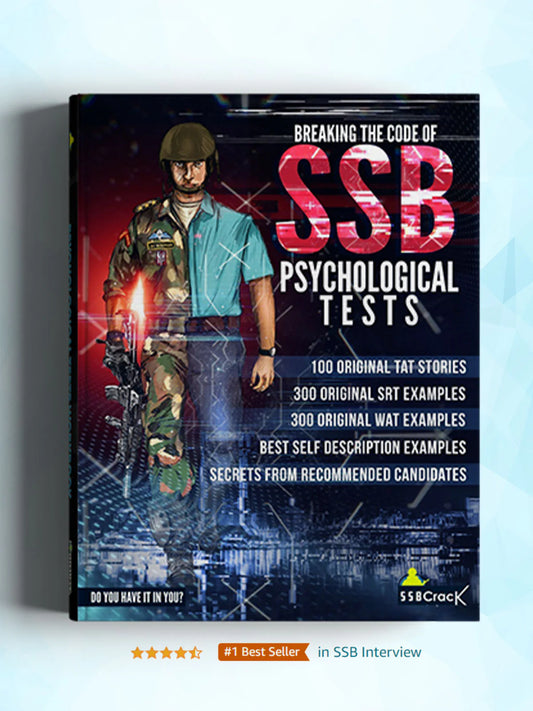
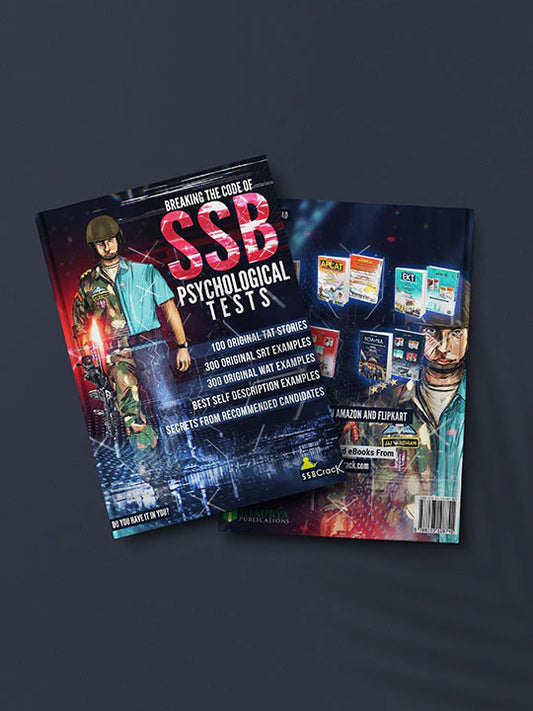
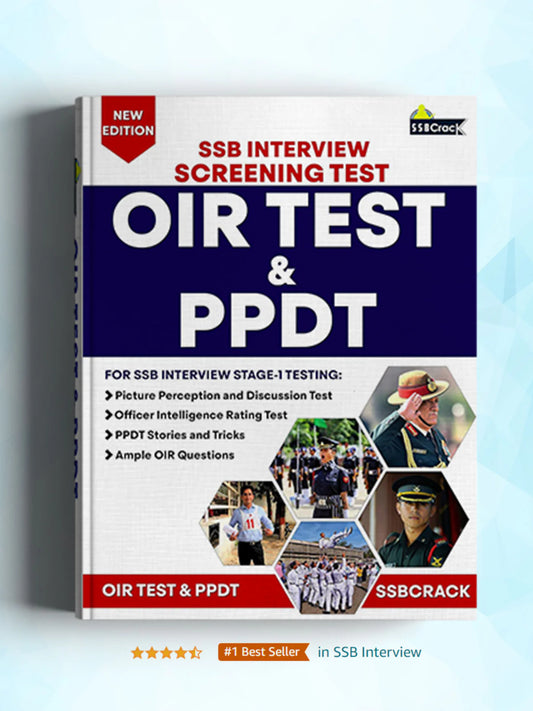
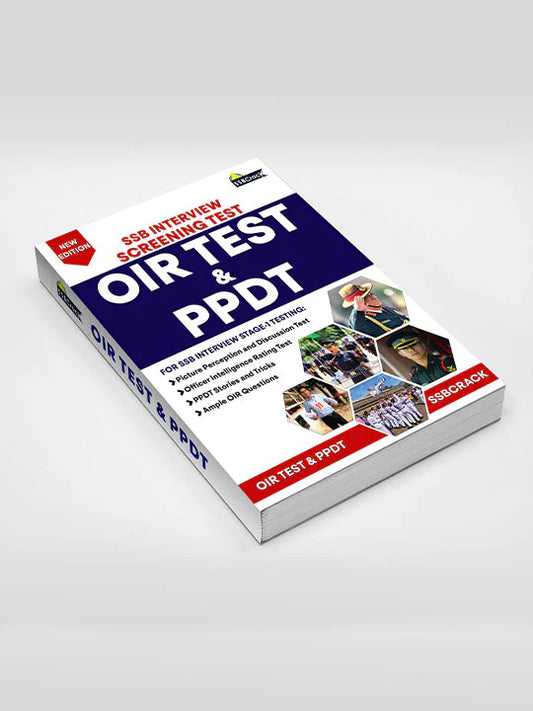
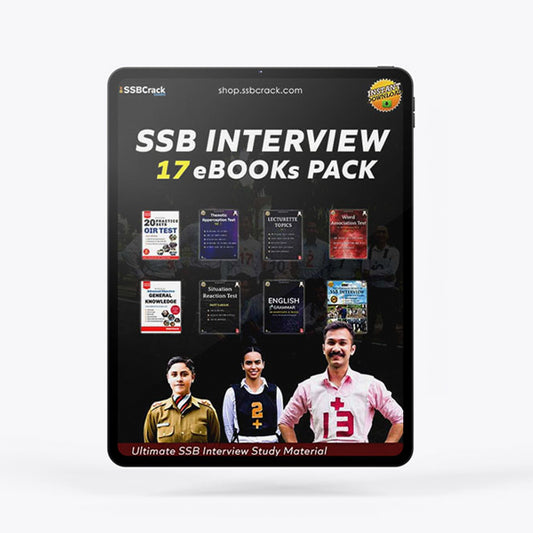
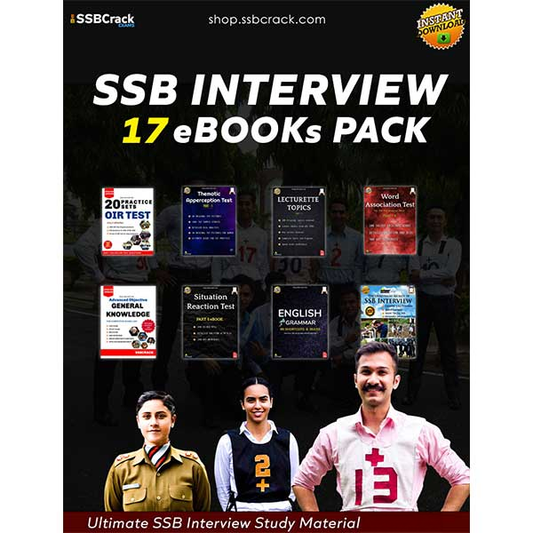
![Thematic Apperception Test (TAT) Part 1 eBook [100+ Stories]](http://shop.ssbcrack.com/cdn/shop/files/TAT-ebook-part-1-ssbcrack_051ae49c-43ea-4eb4-95c7-0fa0bfa2a639.jpg?v=1735540406&width=533)
